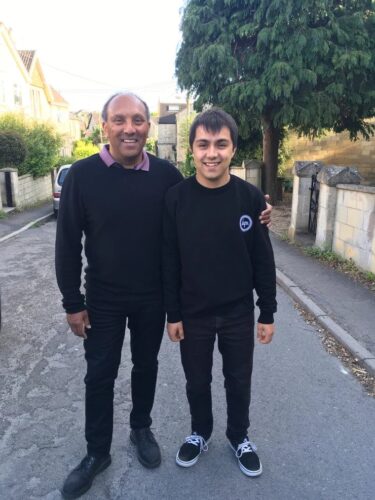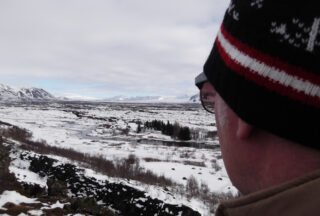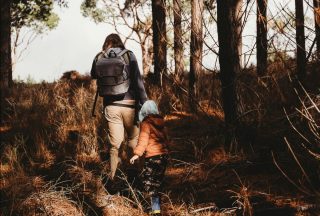Ever since my dad was made redundant from his job in 2013, everything changed for my family.
My mum had to start working full time and my brother (pictured at the end of this article) and I had to step in with helping around the house. It wasn’t until 2018 that he was fully diagnosed with dementia with neurodegenerative disease, but it was long before that when we knew there was something seriously wrong.
Early onset dementia refers to a person who is diagnosed with dementia under the age of 65. It can be a very difficult disease to diagnose because there is so little known about it, and it can be a lot less black and white than the different varieties seen in the elderly. Equally, everyone’s experiences can vary so drastically, so there’s no set timeline and each person’s progression is completely unique.
Receiving a diagnosis ended up being a struggle for my parents as the consultants kept on pushing to diagnose my dad with depression. After he had to stop driving, he received a diagnosis of cognitive impairment with a functional component.
These long, vague words gave my father no springboard to achieve government or charity support, so we were left to our own devices.
When we finally received the necessary diagnosis, containing that all important ‘D’ word, doors were finally opened for us. Support groups were available and memory enhancing drugs were on offer. But we had already learnt how to manage on our own.
In 2018, before I left for university, dad’s condition was steady and he was able to live a relatively busy life. With his weekly volunteering at a local National Trust site and his attendance at fully equipped support groups, his brain was being frequently stimulated.
My brother, Lawrence, wasn’t working so he was able to stay at home to keep my dad company when my mum was at work, offering priceless support. We are a very close family so, operating as a team came relatively naturally to us and we were all happy with our lives.
Since coming home for lockdown, Lawrence and I are finding ourselves helping him more and more as his dementia is getting worse.
We will make sure his clothes are out in the mornings so he knows what he is supposed to wear, and we then need to guide him downstairs into the kitchen as he frequently gets lost in our house.
We help to prepare his breakfast and lunch by getting out all the things he needs, and also make sure to keep an eye on him in case he gets confused and needs further assistance.
We would no longer be able to rely on him to remember to make lunch or even say, “Make your lunch dad!” as he will just become bewildered unless we physically help him.
I really like to walk into our local town with him to get some fresh air and buy a few groceries. This gives him something to do during the day as, due to his inability to read or concentrate on any activity, he often finds himself sitting down, just listening to music.
I feel like the most valuable support I offer is taking him out for a walk or run as this helps him feel busy and reminds him of his old life when he used to run every day.
It is becoming more and more vital to keep an eye on dad and it’s important for us all to learn to recognise when he needs something. We remind him to have a glass of water, a snack and make sure he’s been to the toilet before he goes out.
Carer Support Wiltshire and their young adult carer support service have been a great help to me and Lawrence.
Lawrence has received frequent support from them, and we have often been along to group activities where we were able to socialise with other young adult carers.
He loves the monthly carers cafés as they give him a nice break and a chance to chat with the support workers. We were even given the opportunity to go down to Southampton and take part in a CV workshop as well doing an escape room.
Lawrence and I find it hard being young adult carers, but the young adult carer support team help us to remember that we are not alone.
We are really close with our mum and grandparents and, together, we operate as a great team. We don’t know what we have in store for us in the future, but we are ready to face it head on.





